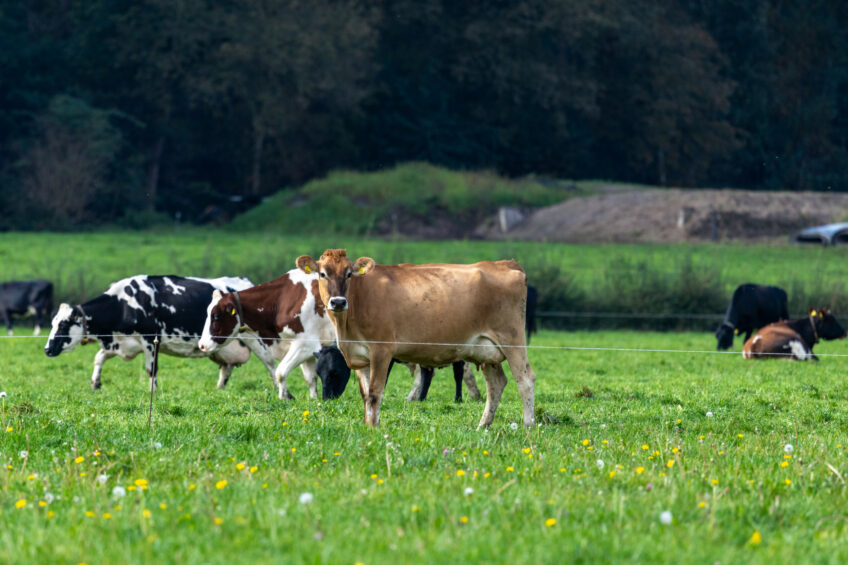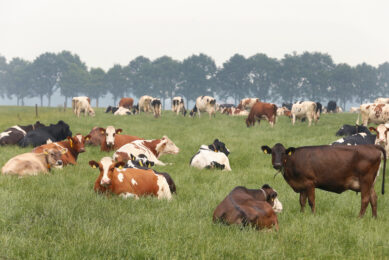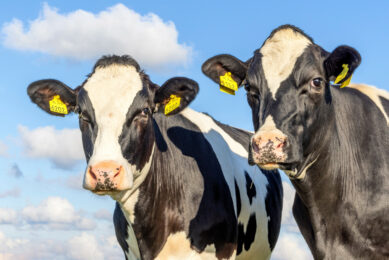UK government: methane reductions must not come at a cost

Methane mitigation in the UK dairy sector must be considered in the context of other priorities such as food security, biodiversity, ongoing higher food costs and sustainable farming, states a UK government report.
In addition, costs linked to the reduction in emissions must not be borne solely by farmers and consumers, according to a new report by the UK government’s Environment and Climate Change Committee.
The report, ‘Methane: keeping up momentum’, says the UK must keep up momentum at home and demonstrate international leadership, but it needs to do so in consultation with farmers and regulators to ensure clear and consistent expectations are set and accompanying guidance is provided.
The report also says:
- The government should consider whether and how Environmental Land Management Schemes could be used as an effective policy tool to incentivise methane mitigation.
- Enhanced monitoring and verification of emissions at smaller scales not only improves the quality and accuracy of data for the UK’s National Inventory Report, but also makes it possible to reward and encourage good practice in mitigating emissions by individual businesses or individuals.
- The government should build on its work to improve the accuracy and reliability of agricultural emissions calculators for use on individual farms.
- It should consider whether there is a case for setting separate methane emissions targets for different sectors, and whether regulation could support this policy.
A science and evidence-based approach
Responding to the report, National Farmers’ Union president Tom Bradshaw welcomed many of the recommendations, saying it was vital a science and evidence-based approach was taken.
“British farmers are world leaders in producing climate-friendly goods and want to do more, but we cannot do it alone,” he said. “Farmers are being asked to do more with less and many are concerned about their future. It is vital we see a clear policy direction from government to support farm businesses to reduce emissions through productivity improvements and technology advancements, such as a fit for purpose livestock information programme. Additionally, consumer engagement is essential for driving sustainable supply chains and enabling informed decision-making.”
In response, the NFU called upon the government to:
- Incentivised Key Performance Indicators and greenhouse gas assessments, and support industry initiatives which aim to reduce duplication and drive the provision of reliable, streamlined data.
- Support collaborative working on the next steps in harmonising greenhouse gas accounting tools for agriculture.
- Build a multi-species livestock information service that makes greater use of the statutory data already collected and integrates non-statutory information to inform management decisions on farm that will increase productivity.
- Continuously improve the national greenhouse gas inventory, with more representative emissions factors and activity data.
- Address the economics and regulatory barriers to investment in small-scale anaerobic digestor plans and other advanced slurry management technologies.
- Implement strong safeguards to ensure that our highly trade-exposed sector is not at risk from the export of our food production emissions through “carbon leakage”.
- Set up targeted incentives in the tax system.
The NFU supports dual accounting using GWP100 and GWP* because of the advantages and disadvantages of both metrics. It also wants to see solutions for incorporating GWP* for dual reporting in on-farm calculators. The nutrient density of foods in relation to their climate impact also needs to be expressed.
*The NFU-written evidence can be found – Methane – Written evidence – Committees – UK Parliament
Join 13,000+ subscribers
Subscribe to our newsletter to stay updated about all the need-to-know content in the dairy sector, two times a week.










